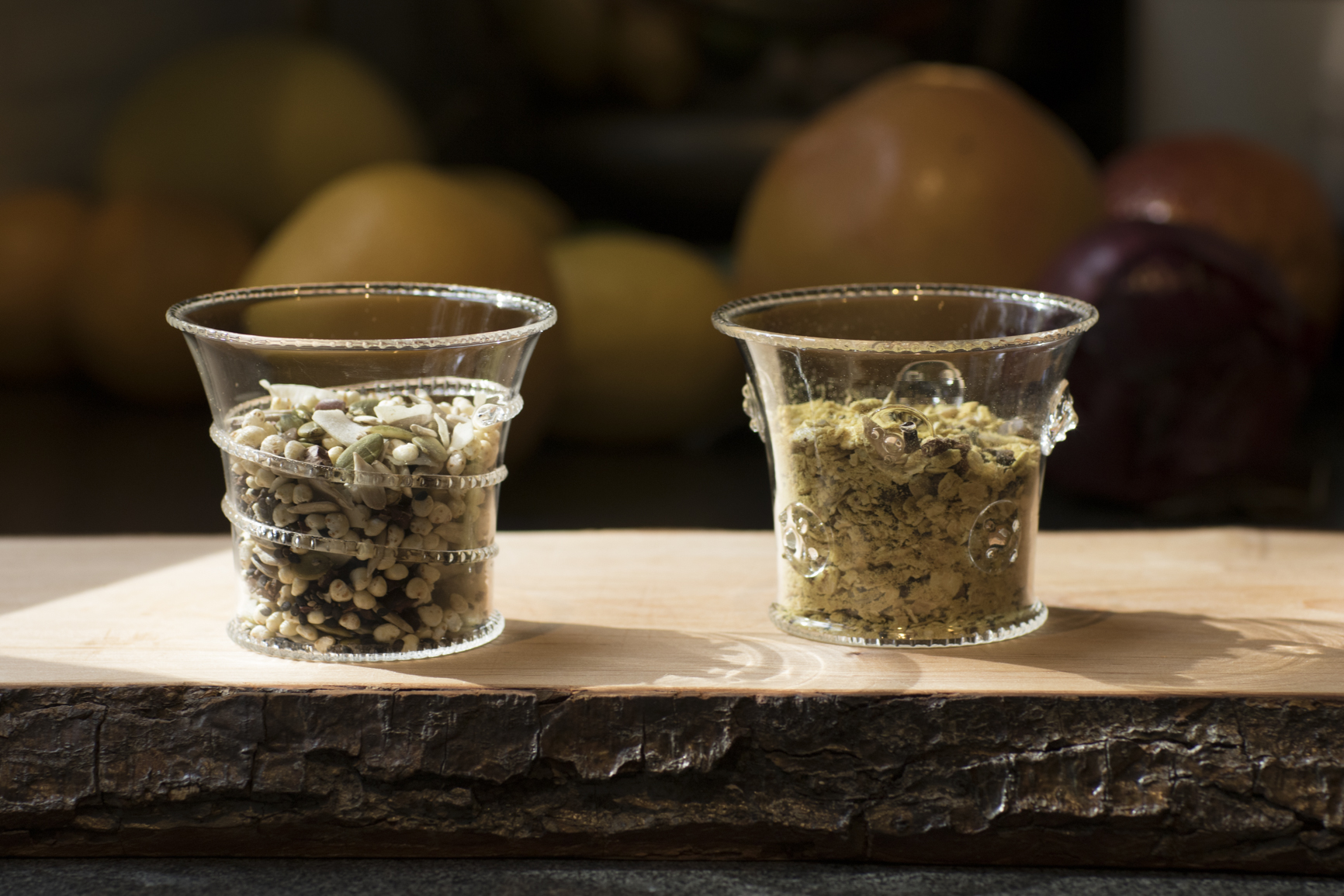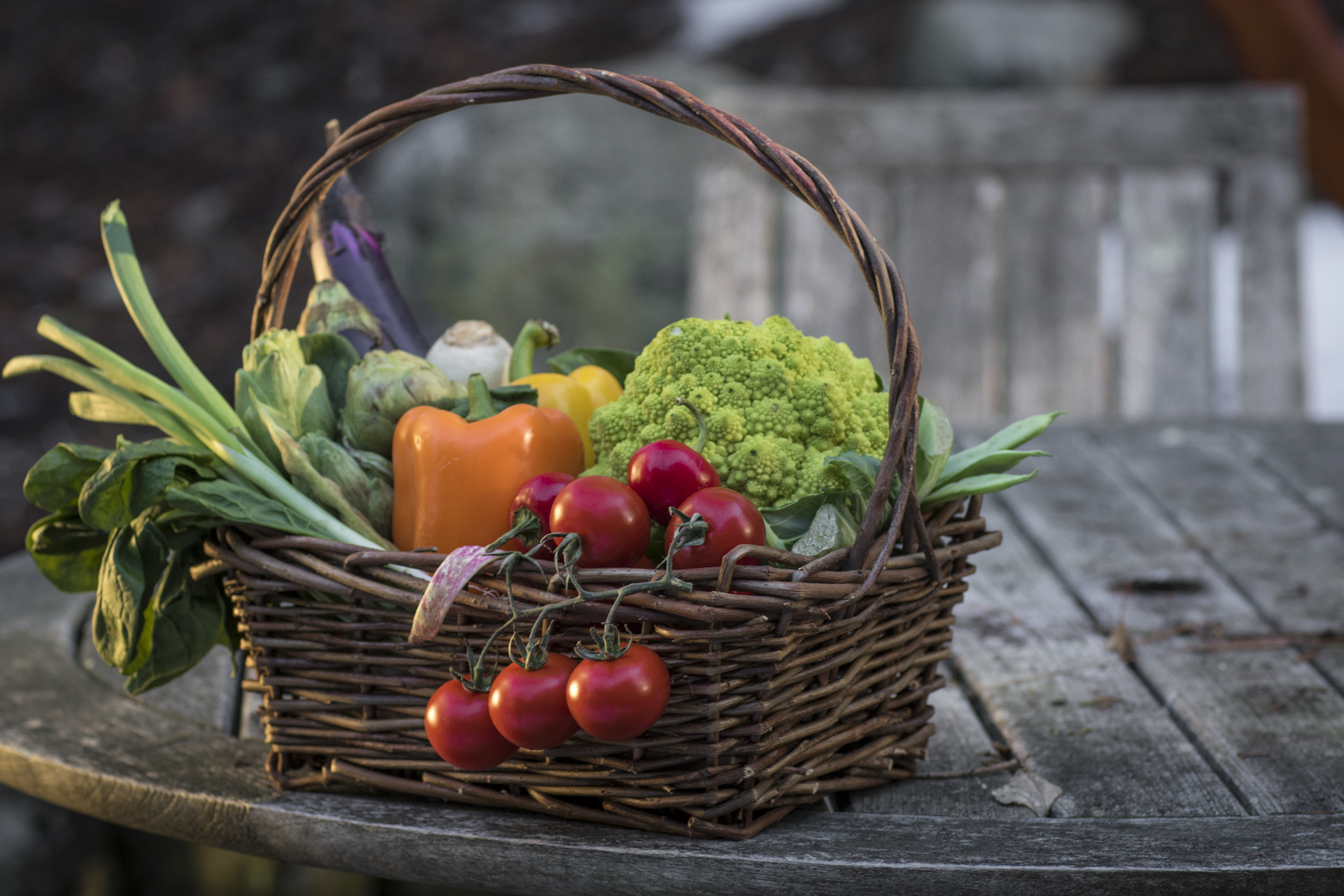the good; the bad & the ugly

A Botanical Kitchen crash course on the little protein that can have big implications for your health.
Food is nourishing; food is delicious; food is fuel for your physical and mental well-being. The more you know about the foods your body needs, the more you’ll thrive.
For optimal health, it’s essential to gain knowledge of what foods are best for you and your unique body, not only what to eat, but also what to avoid. It’s unfortunate when some foods cause health troubles, but this is the case for many with gluten sensitivity. You may find that eating gluten impacts your digestion, leads to body aches and pains, tiredness, brain fog, or affects your mental self.
The good news is that even with gluten sensitivity, you still have the choice of many great foods that benefit your entire body.
About Gluten: The Good, The Bad, The Ugly
Gluten isn’t inherently “bad.” It’s a naturally-occurring protein found in grains like wheat, barley, and rye. The truth is, it does a great job when it comes to making foods like bread, pizza, pasta, cakes, cookies, crackers, pastries and dough, it helps to form a great texture which is part of the delicious taste. Gluten contributes to the elasticity of batter and dough; it helps baked products have a soft, cakey, doughy, airy texture and gives structure for bread to rise. It’s a valuable ingredient in that respect!
But gluten doesn’t agree with everybody. Everyone’s body is different, and for many people, consuming food products that contain gluten can make them feel a range of unpleasant things like:
● bloating
● abnormal bowels
● abdominal pain
● headaches or migraines
● fatigue
● skin conditions such as eczema or psoriasis
● anxiety and depression
● unexplained weight loss or weight gain
● inflammation, joint and muscle pain
If you experience any of these symptoms after eating a food that contains gluten, you may start to suspect you have a sensitivity to gluten. If this is the case, know that you haven’t done anything wrong. Understanding how gluten may be affecting you can empower you to make some simple dietary changes that could have significant health benefits.
But if you suspect that what’s going on is more severe than a sensitivity, your doctor can help with testing to see if your reaction to gluten is a significant health problem, such as Celiac disease. Celiac disease is an autoimmune disorder in which gluten causes the body to attack the tissue of the small intestine. If not treated, celiac disease can lead to many other health complications because the damaged small intestine can’t properly absorb the nutrients it needs.
Remember that food is a life force. If you have celiac disease, don’t feel discouraged that certain foods don’t work well with your body. You can nourish your body with gluten-free foods, and find that you are more capable than ever of fully embracing life.
Need to limit Gluten or go Gluten-Free?
It’s easier than you think, even though many everyday foods contain gluten. With a little practice, you’ll quickly learn how to identify what foods are friendly to your body and what ones aren’t.
A simple way to start is to know what foods contain gluten and avoid them. Gluten is found grains like wheat, barley and rye, any food products made from wheat or wheat derivatives, barley, rye, malt, and brewer’s yeast contains gluten. This includes foods such as bread, pasta, baked goods, cereals, crackers, and other foods such as beer and malt beverages. Oats themselves do not contain gluten, but they are often processed in a facility that also processes wheat, barley and rye. Therefore, those oats might be “contaminated” with gluten from the machinery that handled them. To be sure you can buy “gluten-free” oats.
Many processed foods contain gluten. Flour is often used as a thickening ingredient in condiments, sauces, snacks, seasonings, pre-made meals and packaged quick-cooking dishes. Gluten is an additive in a lot of high protein vegan products as well as deli and pre-made meat products. It may be helpful to become familiar with lists of foods and products that may have gluten in them.
In processed and packaged foods gluten seems to be everywhere, but if you are eating a predominantly whole foods diet than avoiding gluten is easy, you can do this. Really. Gluten-free does not need to be restrictive at all. It can be flavorful and freeing once you become familiar with a few strategies for finding and preparing gluten-free foods.
Remember, always read the Labels!
I want to know what companies are putting in my food and what I am putting in my body, so I always check the label and ingredients of both food and beauty products. Since 2013, the FDA has regulated the labelling of foods as “gluten-free” so you know that the food has met a defined standard that is safe for your body. Other products may have a statement that says directly if an item contains wheat as a common allergen. You should also check the ingredients to see if it has gluten-containing ingredients.
Be aware Gluten-free doesn’t mean healthy!
Gluten-free processed and packaged foods can be full of highly processed carbohydrates, refined sugars and plenty of other unpronounceable ingredients. One of the best and easiest ways to eat healthy and gluten-free is by choosing whole foods that are naturally free of gluten, such as:
● fruits
● vegetables
● nuts and seeds and quinoa - considered a seed a pseudo-grain
● legumes like beans, lentils, chickpeas
● eggs, fish, seafood and fresh meats
● grains like rice, amaranth, teff, buckwheat, millet, gluten-free oats

Meal planning and having a collection of gluten-free recipes can help. Consider cooking delicious gluten-free meals at home. These breakfasts boast ancient grains, and here are some of our nutrient-rich snacks that are healthy with wonderful and filling flavours.
A gluten-free way of eating isn’t limiting. If you have a gluten sensitivity, adopting a gluten-free lifestyle can help lessen your symptoms and heal you from the inside out. After all, you deserve to eat the foods you love, and that make you feel good.
You can eat to thrive with a gluten sensitivity or a significant gluten intolerance such as celiac disease, by choosing the right foods for your body, food can be medicine.
***The signs and symptoms of a gluten sensitivity could also be the effects of other health conditions. If you have celiac disease, always follow the advice of your doctor. This article is not intended to diagnose, treat, cure, or prevent any disease. Always consult a Doctor or healthcare professional if you suspect you are ill.
Image: Jim Flynn
Resources:
https://celiac.org/about-celiac-disease/what-is-celiac-disease/
https://www.medicalnewstoday.com/articles/324494.php
https://universityhealthnews.com/daily/gluten-free-food-allergies/what-has-gluten-in-it/
https://www.livescience.com/53265-what-is-gluten.html
https://www.healthline.com/nutrition/signs-you-are-gluten-intolerantGluten 101



 letter
letter